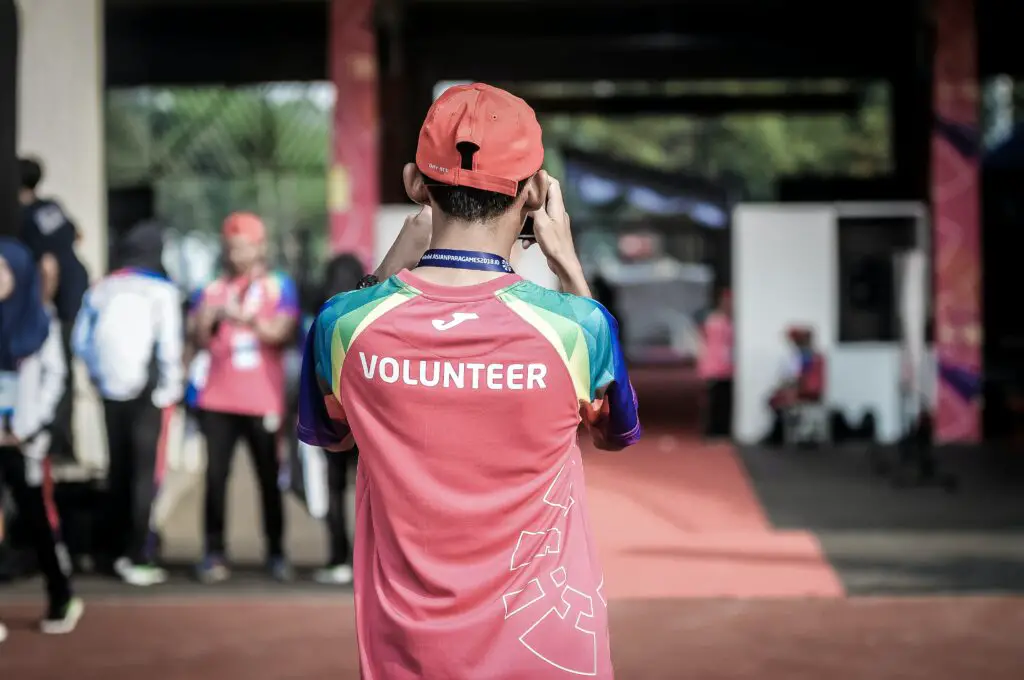Introduction
Volunteering is a popular activity among high school students in the United States. It not only helps them develop leadership skills but also gives them an opportunity to give back to the community. Many students believe that volunteering will enhance their college applications. However, the question remains, do colleges look at volunteer hours?

Do Colleges Look At Volunteer Hours?
Yes, colleges do look at volunteer hours when evaluating an applicant’s college application. Volunteer work is considered an essential part of a student’s extracurricular activities and is often taken into account by admissions officers. Volunteer work reflects an applicant’s dedication to their community and willingness to help others, which are traits that colleges value.
However, it is important to note that not all colleges place the same weight on volunteer work. Some institutions value community service more than others, and some may not consider it at all. Therefore, it is crucial to research the colleges you are interested in and their admissions requirements to determine how important volunteer work is in their decision-making process.
How do colleges evaluate volunteer work?
Colleges consider the quality and quantity of an applicant’s volunteer work. Admissions officers look for students who have volunteered consistently over a period of time, demonstrating a commitment to their community. They also look for students who have taken on leadership roles in their volunteer organizations, showing initiative and responsibility. Moreover, colleges are interested in the impact of a student’s volunteer work on their community. For example, “a student who has organized a successful fundraising event for a local charity is likely to impress admissions officers”.
How much volunteer work should a student do?
There is no set amount of volunteer work that a student should complete. Instead, colleges look for a pattern of consistent volunteer work over a student’s high school career. In other words, it is better to have “volunteered for an hour every week for four years than to have volunteered for 100 hours in one summer”. However, this does not mean that students should not volunteer during the summer. Summer is an excellent time to take on more significant volunteer projects, such as working at a summer camp or volunteering abroad.
What types of volunteer work are most valuable?
Colleges do not prioritize one type of volunteer work over another. Instead, they are interested in an applicant’s commitment to their community and their ability to make a difference. Any type of volunteer work can be valuable if it demonstrates a student’s dedication and initiative. For example, a student who has volunteered at a local hospital, organized a food drive, or tutored younger students is likely to impress admissions officers.
Should students volunteer just for the sake of college applications?
No, students should not volunteer just to enhance their college applications. Volunteer work should be a genuine interest and commitment to helping others. Students who engage in volunteer work solely for college applications are unlikely to impress admissions officers, as their commitment to their community may be seen as insincere.
Tips for making the most of your volunteer work:
If you are interested in using your volunteer work to enhance your college application, here are some tips to help you make the most of your experience:
- Choose volunteer work that aligns with your interests: Choose volunteer work that you are passionate about and that aligns with your interests. This will make the experience more enjoyable and fulfilling, and it will also demonstrate to colleges that you have a clear sense of your values and priorities.
- Be consistent: Consistency is key when it comes to volunteering. It is better to commit to a few hours a week over an extended period of time than to volunteer sporadically. This shows colleges that you are committed and dedicated to making a difference.
- Seek out leadership roles: Look for opportunities to take on leadership roles within your volunteer organization. This demonstrates to colleges that you have the ability to take charge and make a positive impact.
Conclusion:
Volunteering is a valuable extracurricular activity that can enhance a student’s college application. Colleges consider volunteer work as an important aspect of an applicant’s profile, reflecting their dedication, leadership skills, and commitment to their community. However, students should not volunteer solely to enhance their college applications. Instead, they should volunteer because they have a genuine interest in helping others.
Frequently Asked Questions:
- Can volunteer work compensate for low grades?
No, volunteer work cannot compensate for low grades. While volunteer work is an important extracurricular activity, it cannot make up for poor academic performance.
- Is it better to volunteer for a specific cause or organization?
No, there is no advantage to volunteering for a specific cause or organization. Colleges are interested in a student’s commitment to their community, regardless of the type of volunteer work they do.
- Should students include volunteer work on their resume if it is not related to their major?
Yes, students should include all of their volunteer work on their resume, regardless of whether it is related to their major. Volunteer work demonstrates a student’s leadership skills, dedication, and commitment to their community, all of which are traits that make an impact.
